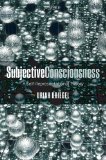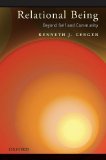
Here are some recent & forthcoming books on the philosophy of the self:
Philosophy of Personal Identity and Multiple Personality (Routledge Studies in Contemporary Philosophy) by Logi Gunnarsson
Product description from the publisher:
As witnessed by recent films such as Fight Club and Identity, our culture is obsessed with multiple personality—a phenomenon raising intriguing questions about personal identity. This study offers both a full-fledged philosophical theory of personal identity and a systematic account of multiple personality. Gunnarsson combines the methods of analytic philosophy with close hermeneutic and phenomenological readings of cases from different fields, focusing on psychiatric and psychological treatises, self-help books, biographies, and fiction. He develops an original account of personal identity (the authorial correlate theory) and offers a provocative interpretation of multiple personality: in brief, “multiples” are right about the metaphysics but wrong about the facts.
Rethinking the Western Understanding of the Self by Ulrich Steinvorth
Product Description
In this book, Ulrich Steinvorth offers a fresh analysis and critique of rationality as a defining element in Western thinking. Criticizing revelation, tradition, and collectivism, Western thinking champions rationality, human rights, and individualism, and culminates in a unique understanding of the self. The prevailing understanding of the self was formed by the Lockean conception and utilitarianism. Compatible with classical physics, it does not, however, explain the cataclysms that occurred in the twentieth century. Steinvorth argues that Descartes’ understanding of the self offers a more plausible and realistic alternative. When freed from the dualism in which Descartes conceived it, such a conceptualization enables us to distinguish between self and subject. Moreover, it enables us to understand why individualism – one of the hallmarks of modernity in the West – became a universal ideal to be granted to every member of society; how acceptance of this notion could peak in the seventeenth century; and why it is now in decline, though not irreversibly so. Most importantly, as Steinvorth demonstrates, the Cartesian concept of the self presents a way of saving modernity from the dangers that it now encounters.
Who One Is: Book 1: Meontology of the “I”: A Transcendental Phenomenology by James G. Hart
coming in Sept 2009
The Impertinent Self: A Heroic History of Modernity (Cultural Memory in the Present) by Josef Früchtl (tr Sarah Kirkby)
Product Description
The Impertinent Self provides a philosophical and cultural theory of modernity by constructing a parallel between the philosophical self and the hero figure found in certain cinematic genres. Früchtl argues that modernity is not unified and should be conceived as a phenomenon consisting of three strata: the classical, the agonist, and the hybrid. He demonstrates this by following a dual trajectory: the shift in the concept of the self from German idealism to Romanticism and so-called postmodernism, and the evolution of the hero figure in the Western and in crime and science fiction movies. Früchtl takes a clear position within the ongoing discussion in the humanities and social sciences about modernity, a discussion that, in light of the work of Foucault, Lyotard, and Habermas, has too often neglected the importance of Romanticism. Similarly, he embraces the role of film and popular culture in modern society.
coming in Oct 2009
Personal Identity and Fractured Selves: Perspectives from Philosophy, Ethics, and Neuroscience
From the publisher’s description:
This book brings together some of the best minds in neurology and philosophy to discuss the concept of personal identity and the moral dimensions of treating brain disease and injury. The contributors engage a crucial question: When an individual’s personality changes radically because of disease or injury, should this changed individual be treated as the same person?
Titles featured in previous posts:
The Ego Tunnel by Thomas Metzinger
Virtual Selves, Real Persons by Richard S Hallam
Me (Art of Living) by Mel Thompson
Relational Being by Kenneth Gergen







